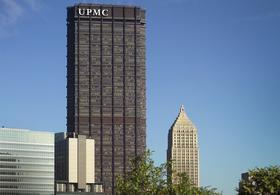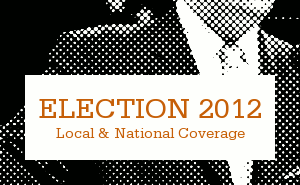
The community group Pittsburgh United wants to see UPMC give up its nonprofit status or begin funneling money into what it calls the city’s failing tax-based services.
As part of a week-long campaign to shed light on the taxes that could be reaped from the region’s largest employers, Pittsburgh United released research into what UPMC would potentially pay back into the community through taxes were it not a non-profit.
Executive Director Barney Oursler said when the steel industry left, so did the strong tax base as it was replaced with mostly non-profit education or medical services.
“We’re seeing a significant change not just in the employer, but the role that employer plays in terms of supporting critical public needs and services,” Oursler said.
Oursler said the group targeted UPMC because they operate like a for-profit, citing examples of employees complaining of staff cutbacks and longer hours. He said UPMC’s bottom line doesn’t look the same as another local non-profit, the University of Pittsburgh, who has a large gap in cost of operations and income.
According to their research, UPMC is shielded from $204 million in taxes including property taxes and $133 million in income tax. They said while the largely non-profit company paid $8.4 million in taxes in 2011, that number comes to about a 1.68 percent tax rate, drastically lower than the effective 30 percent tax rate for-profit corporations pay.
Research director Merritt Bussiere said UPMC would have no trouble paying that raised rate.
“You know they could pay this $204 million a year and still have well over $200 million left in profits,” Bussiere said. “They’re not going to the poor house if they start to contribute.”
UPMC says in fiscal 2010 it paid $55 million in taxes and other contributions (payments in lieu of taxes, PILOT's) to local, county and state governments. The health system says for the same period it provided $218 million in charity care.
Oursler said the report is not necessarily a call for the corporation to give up its non-profit status, but they need to commit financially to the region.
“If UPMC is going to stay a nonprofit, then we’re calling on them to make substantial contributions out of their profits,” Oursler said. “Not spend them in just places like expanding into the Far East and the Middle East but spend them here in town to support the critical needs for education, transit and many other services that depend upon a tax base.”
In September, state Senator Wayne Fontana (D-Allegheny County) proposed legislation to require large nonprofits to pay property taxes on their land, not their buildings with the first $200,000 of the value being exempt.






